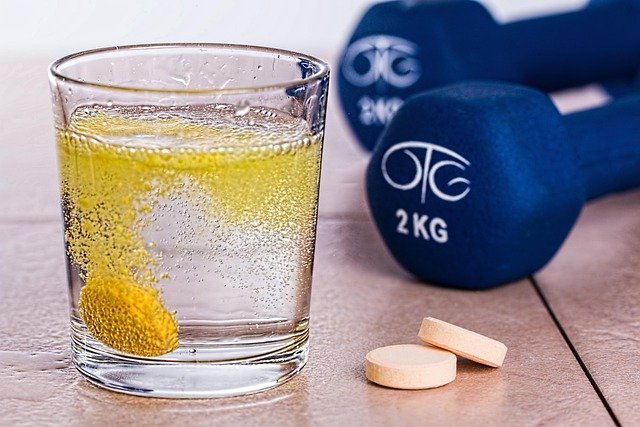Daily Habits That Boost Energy and Immunity
Simple daily habits can steadily increase your energy and strengthen your immune response. Focused changes in nutrition, sleep, hydration, movement, and stress management create a foundation for sustained vitality and resilience across different life stages and environments.

Everyday routines shape how you feel and how well your body defends itself. Small, consistent choices—like the foods you eat, how you sleep, and how you manage stress—combine to influence energy, immunity, and long-term resilience. This article outlines practical habits tied to nutrition, fitness, sleep, hydration, mindfulness, and preventive care that can be adopted without dramatic lifestyle upheaval, emphasizing realistic steps for sustained improvements.
This article is for informational purposes only and should not be considered medical advice. Please consult a qualified healthcare professional for personalized guidance and treatment.
How does nutrition support immunity and energy?
Good nutrition provides the building blocks for energy production and immune function. Prioritize a variety of whole foods: vegetables, fruits, lean proteins, whole grains, legumes, and healthy fats. Micronutrients such as vitamin C, vitamin D, zinc, and B vitamins help immune cells function and support metabolic pathways that generate energy. Regular meals with balanced macronutrients stabilize blood sugar and reduce fatigue. Consider simple practices like planning a colorful plate, incorporating a protein source at each meal, and choosing minimally processed options to sustain both energy and immunity.
What role does sleep play in recovery and longevity?
Sleep is central to recovery, immune regulation, and cognitive performance. Deep and sufficient sleep supports the production of immune-signaling molecules and helps repair tissues damaged by daily activity. Aim for consistent sleep timing and prioritize sleep hygiene: a dark, cool bedroom, limited blue-light exposure before bed, and relaxing pre-sleep routines. Chronic sleep deprivation increases infection risk, impairs memory, and affects hormones that regulate appetite and metabolism, so improving sleep is a high-impact habit for both short-term energy and long-term health.
How can regular exercise and fitness improve energy?
Exercise boosts mitochondrial efficiency, circulation, and mood—factors that directly influence daily energy levels and immune readiness. A mix of moderate aerobic activity, strength training, and flexibility work provides broad benefits: aerobic exercise supports cardiovascular health; resistance training preserves muscle and metabolic rate; mobility work improves ergonomics and reduces injury risk. Consistent movement, even short daily sessions, enhances recovery and supports longevity. Balance intensity with adequate rest to avoid overtraining, which can suppress immunity and reduce energy.
Why is hydration important for immunity and performance?
Hydration affects nearly every physiological process, including nutrient transport, temperature regulation, and cognitive function. Even mild dehydration can decrease alertness and physical performance. Water supports mucous membranes and barriers that help defend against pathogens, and it assists in flushing waste products produced during immune responses. Develop habits like starting the day with a glass of water, sipping regularly during activities, and consuming hydrating foods (fruits, soups) to maintain consistent fluid balance throughout the day.
How does mindfulness reduce stress and support immunity?
Stress influences immune function through hormonal pathways; chronic stress can impair immune responses and deplete energy. Mindfulness practices—such as brief breathing exercises, meditation, or focused breaks—help regulate the stress response, lower perceived tension, and improve sleep quality. Integrating short, regular mindfulness sessions into the day can improve recovery, reduce inflammatory signaling, and enhance concentration. Pairing mindfulness with gentle movement or stretching can also aid recovery and improve ergonomics, particularly for people with sedentary jobs.
How do prevention, diagnostics, and telemedicine fit into daily health?
Routine prevention and timely access to diagnostics help maintain long-term energy and immunity. Regular preventive measures—vaccinations, screenings, and periodic check-ins—reduce the burden of illness. Ergonomics and workplace adjustments prevent chronic pain and fatigue that sap energy. Telemedicine provides convenient access to clinicians for early concerns, follow-ups, and management of chronic conditions, improving continuity of care. Using digital tools judiciously and combining them with in-person care when needed creates a more responsive approach to daily health.
Maintaining energy and a resilient immune system is less about dramatic fixes and more about consistent, manageable habits. By integrating balanced nutrition, prioritizing sleep, staying hydrated, moving regularly, practicing stress-reduction techniques, and using preventive and diagnostic resources thoughtfully, most people can improve daily vitality and long-term wellbeing. Small changes sustained over time produce measurable benefits for performance, recovery, and longevity.





